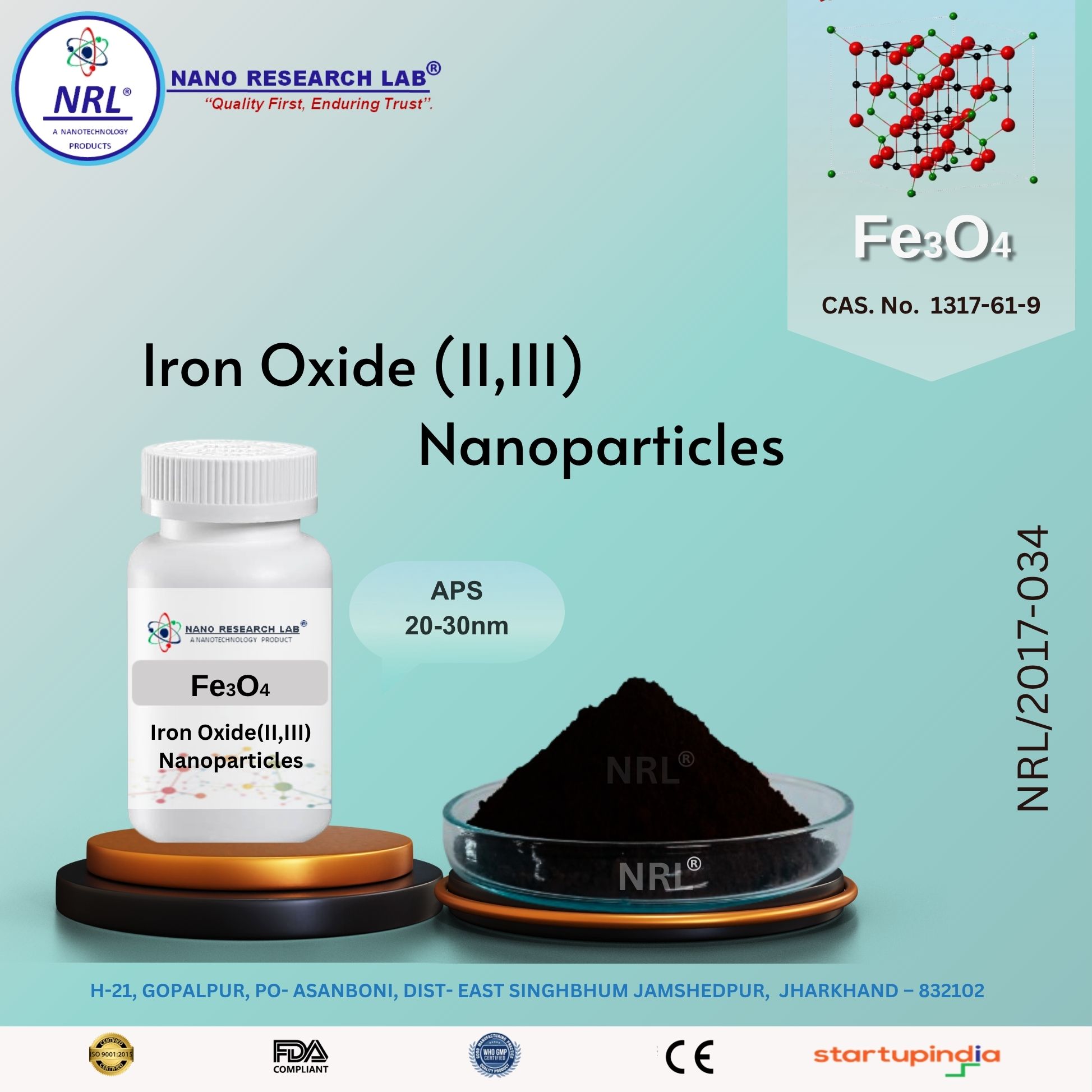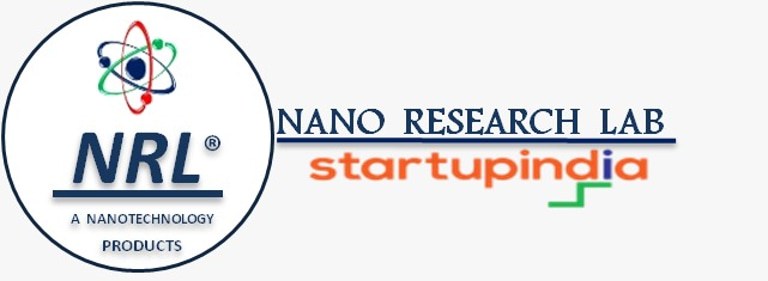
Iron Oxide Nanoparticles/Nanopowder (Fe3O4, 20-30nm, purity 99.5%)
₹1475.00
Iron Oxide Nanoparticles / Nanopowder (Fe₃O₄, 20–30 nm, Purity 99.5%)
Technical Specifications
Property | Specification |
|---|---|
Chemical Name | Iron(II,III) Oxide (Fe₃O₄, Magnetite) |
CAS Number | 1317-61-9 |
Molecular Weight | 231.53 g/mol |
Purity | ≥ 99.5% |
Appearance / Color | Black Fine Powder |
Particle Size (Average) | 20–30 nm |
Morphology | Nearly Spherical / Irregular |
Crystal Structure | Cubic Inverse Spinel |
Density | 5.2 g/cm³ |
Specific Surface Area (BET) | 40–80 m²/g |
Melting Point | ~1590 °C (decomposes) |
Boiling Point | Decomposes above 2000 °C |
Solubility | Insoluble in water; soluble in acids |
Magnetic Properties | Superparamagnetic / Ferrimagnetic (size-dependent) |
pH (in aqueous suspension) | ~7.0 |
Stability | Chemically stable under normal conditions; may oxidize to γ-Fe₂O₃ over time |
Key Features
High Purity (≥ 99.5%) ensures consistent quality for industrial and research applications.
Nanoscale Particle Size (20–30 nm) provides high surface area and enhanced reactivity.
Cubic Inverse Spinel Structure: Supports strong magnetic behavior.
Superparamagnetic / Ferrimagnetic: Ideal for biomedical, magnetic, and sensor applications.
Black Fine Powder: Easy to disperse in solvents, polymers, and composites.
Uniform Morphology: Ensures stable dispersions and reproducible performance.
High Surface Area: Enhances catalytic, adsorption, and magnetic efficiency.
Applications
1. Magnetic Applications:
Used in ferrofluids, magnetic recording media, and magnetic separation.
Suitable for superparamagnetic nanoparticles in biomedical applications (MRI contrast, hyperthermia therapy).
2. Catalysis & Chemical Processes:
Acts as a catalyst or catalyst support in oxidation and redox reactions.
Used in environmental catalysis for pollutant degradation.
3. Pigments & Coatings:
Black pigment for paints, ceramics, and plastics.
Provides thermal and UV stability in coatings.
4. Environmental & Water Treatment:
Adsorbent for heavy metals and organic pollutants.
Magnetic separable adsorbent enables easy recovery.
5. Nanotechnology & Advanced Materials:
Applied in nanocomposites, energy storage, sensors, and spintronic devices.
Suitable for research on magnetic nanomaterials and functional composites.
6. Biomedical & Research Applications:
Explored for drug delivery, targeted therapy, biosensing, and hyperthermia.
